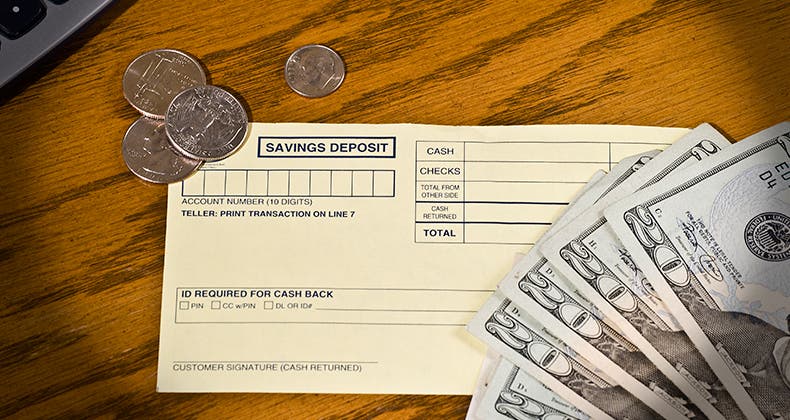Table of Content
We also reference original research from other reputable publishers where appropriate. You can learn more about the standards we follow in producing accurate, unbiased content in oureditorial policy. Is it possible to use a #mortgage broker to get a #homeequity loan? Of course, there’s no guarantee things will go better later on. Still, you might be better off waiting until late winter or early spring to sell your home. “Especially if you enjoy celebrating the holidays with family and friends, this is a time that can be much better spent with loved ones than on home showings,” says Orefice.

With this loan, the homeowner can borrow money from an institution by using the house as collateral. As homeowners borrow against the equity of their homes, they risk foreclosure if the loan is not paid. Perhaps you took out a home equity loan to use as a down payment on a new home. Maybe you have an existing HELOC on your home and are wondering what happens when you sell the house. As long as you’ve built some equity in your home, and your home is worth more than you paid for it, you generally won’t have any issues selling. At the same time you sell your home, you use the proceeds to pay off the existing mortgage.
Can You Refinance Before Selling Your Home, And When Does It Make Sense To Do So?
They’re now notably higher than those seen in the first quarter of 2022 and, according to some, could keep rising. If you’re interested in accessing your home’s equity or lowering your mortgage payment, visit our Learning Center to learn more about the refinancing process. Has grown significantly over the last few years as home prices skyrocketed and you made your monthly mortgage payments. Perhaps the main disadvantage to equity release is that not everybody will be eligible to apply for it.

With features published by media such as Business Week and Fox News, Stephanie Dube Dwilson is an accomplished writer with a law degree and a master's in science and technology journalism. She has written for law firms, public relations and marketing agencies, science and technology websites, and business magazines. Property Assessed Clean Energy loans are an alternative to traditional financing for making energy-efficient improvements to properties.
The Bankrate promise
A home equity loan is a loan you take out against your home’s equity. You’ll pay interest, make monthly payments, and repay the balance over time—usually between 10 and 30 years. Normally, you can sell your home without obtaining mortgage or HELOC lien holder permission as long as those lenders are paid off at sale closing. Lien holders are ranked on property titles by seniority or recording date, with first mortgages usually the senior liens on property titles, says NOLO. Most other liens on property titles, including HELOC liens, fall in behind first mortgages in terms of seniority. Your home's lien holders will be paid from your home's sale proceeds before you, in other words.

If you have any questions about the material that we have covered today please do not hesitate to contact the Law Office of Bryan Fagan. Our licensed family law attorneys offer free of charge consultations six days a week here in our office. We would be honored to sit down with you to go over your case and to answer any questions that you may have. Better known as a HELOC, a home equity line of credit is more like a credit card, only the credit limit is tied to the equity in your home. Rocket Mortgage® is now offering The Home Equity Loan, which is available for primary and secondary homes. Once you refinance, you’ll continue to have a single mortgage.
Are There Fees for Selling a House With a Home Equity Loan?
If the property is valued at less than the one you were living in, there is every chance that you may need to pay back some of the loan and the accrued interest. Actually, theoretical presale value is not an uncommon thing at all, although it may sound that way at first. It’s not dissimilar from the way we value many items in our society. A work of art, for instance, might have an expected going price. But in reality, it’s true worth is determined by what a buyer is willing to pay. The short answer is that when you sell your home to a cash buyer or personal buyer, that’s the moment your home equity becomes a real, defined number.
Say your situation was the same as described above, but you could only get $200,000 for your home. Now there's only $50,000 left to satisfy the $60,000 home equity loan. If you don't have the money, the equity lender won't lift its lien, and you won't be able to complete the sale of the home.
Luckily, some buyers do not mind purchasing properties with liens. That said, you can find buyers willing to purchase your property along with its current liens and encumbrances. On closing day, the buyer’s funds are transferred via escrow. Using these funds, the escrow agent repays the primary $400,000 mortgage and the $50,000 home equity loan, leaving you with a profit of $355,000 before closing costs of around 10%. Before closing, the escrow agent will provide you with a Truth in Lending Real Estate Integrated Disclosure form three days before your home closes and the sale finalizes.

In exchange for lending you large sums of money at generally better rates than you would get on an unsecured personal loan, the financial institution will put alienon your property. Having negative equity means you owe more on your home than it's worth. It's completely possible to sell your home this way, but you need to be aware that you will have to pay off the difference.
Home equity loans are just one option if you want to turn your home equity into cash. Home equity lines of credit, also called HELOCs, are another. They fluctuate often based on the economy, market conditions, and monetary policy, which means the cost of borrowing money can change, too. Can you use home equity to buy a second home or an investment property?

But because the house is collateral for the HELOC, you must find a way to repay this loan before the home sale can close. You can use other funds, wait to sell your home until the housing market recovers, or request your lender to waive the amount owed in a short sale. Home equity loans are secured loans, meaning that if you fail to keep up with repayments, the lender has the right to sell your house to collect what it’s owed. Liens are attached to some types of loans to protect the lender in the event that the borrower doesn’t meet their contractual obligations and keep up with payments.
In 2018, changes to tax codes led to somewhat ambiguous guidelines for investment properties. Because of this, we recommend consulting with an accountant before making any decisions. However, if the home equity loan is not specifically being used to improve the property it was taken out against, it’s likely it will not be tax deductible.
Although it’s not likely that a home equity loan will directly lead to an underwater mortgage, you will be at a higher risk due to owing more on the property. Home equity loans offer lower interest rates because they are secured by collateral in the form of real estate. This means by utilizing a home equity loan, you can avoid the hefty interest rates you would encounter through other forms of financing, like hard money and personal loans.

No comments:
Post a Comment